Flesh-coloured…

(original source unknown)


(original source unknown)
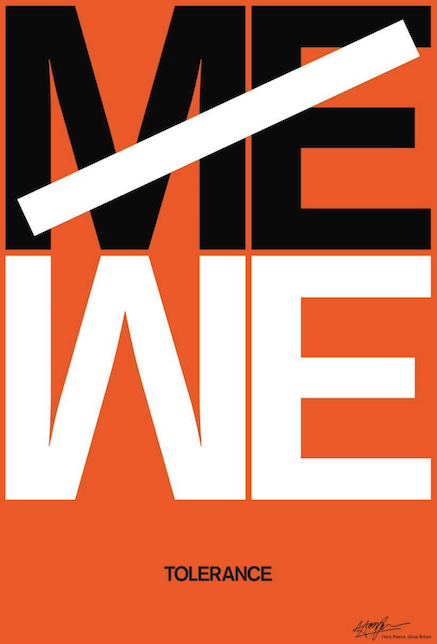
Poster by Harry Pearce, Pentagram UK… more here.
Winnipeg, Manitoba
Canada, which just finished celebrating its 150th year as a “nation,” has a big problem. Since Europeans first arrived, the founding fathers “…used racism, bigotry and discrimination as a tool to not only assimilate First Nations into the Canadian polity, but to engage in a deliberate policy of genocide both cultural and physical…” Surprisingly, there are still many Canadians who are not aware of the country’s dark history, which makes it difficult for them to help bring about the positive change that is so needed.
A decade ago, the Truth and Reconciliation Commission of Canada (TRC) was organized by the parties of the Indian Residential Schools Settlement Agreement. Established in June 2008 with the purpose of documenting the history and impacts of the Indian residential school, it provided former residential school attendees an opportunity to share their experiences during public and private meetings held across the country.
In June 2015, the TRC released an Executive Summary of its findings along with 94 “calls to action” regarding reconciliation between Canadians and Indigenous peoples. The Commission officially concluded in December 2015 with the publication of a multi-volume report that concluded the school system amounted to cultural genocide. The TRC’s “calls to action” provide a clear path forward…
Links to two significant documents are provided here (in PDF form). Click on the images above for access and to download the documents. Please feel free to share this post…
Winnipeg, Canada
The launch of our book, Natural Reflections, took place this evening at McNally Robinson’s Booksellers in Winnipeg. I read select texts from the book’s five chapters, Mike displayed a dozen enlarged photographic prints (and provided back-story re: their creation), and we both answered questions from the standing-room-only audience who had gathered for the occasion. Fun!
Earlier in the day, I did a radio interview with Marjorie Dowhos, host of CBC Manitoba’s ‘Radio Noon,’ and Mike did an interview in French earlier CBC’s ‘Radio Canada’
An inspiring and highly original book of photography takes the reader on an unforgettable walk through the vast and wide beauty of “Natural Canada.” Natural Reflections captures natural beauty from the exceptional viewpoint and unique perspective of Mike Grandmaison’s lens.
A singular gallery of images is curated, amplified and informed by the observations of Robert L. Peters. Filled with insightful musings, truisms and parallel quotations from some of the world’s greatest thinkers, this book is bound to inspire and truly engage both halves of the brain. Divided into five contemplative chapters – On Inspiration, On Seeing, On Intimacy, On Order, On Change – this lavishly produced volume comprises a rich and seamless interweaving of image and word.
This is a book not to be missed by anyone interested in the natural world (and its preservation), the art of outdoor photography, the creative process or this vast land called Canada. The photographer and author, long-time friends and avid nature-lovers, share the humble view that, like a Mother, the Earth both bore us and sustains us, asking little in return but love and respect. This book is their reciprocal tribute and holistic offering.
The book is available at McNally’s and other book-sellers worldwide ( ISBN-10: 1771602546 / ISBN-13: 978-1771602549 ) as well as from online vendors such as Amazon and Chapters, etc…
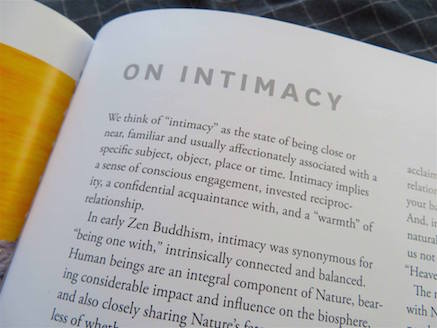
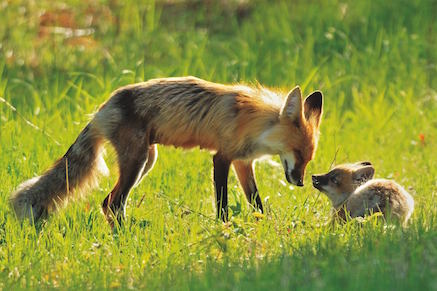
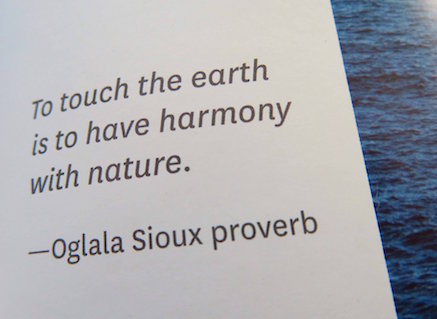
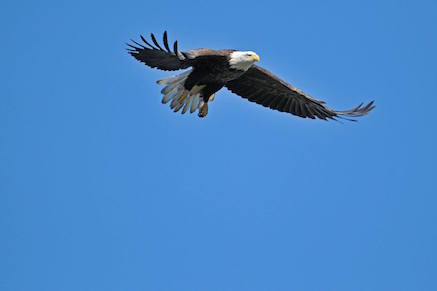
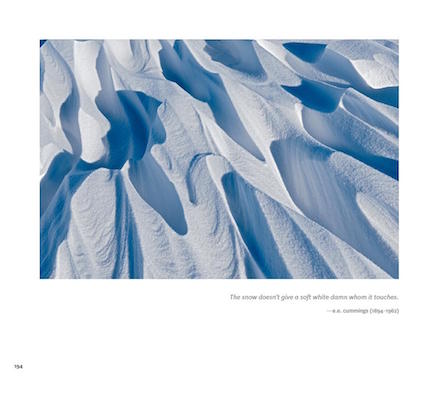
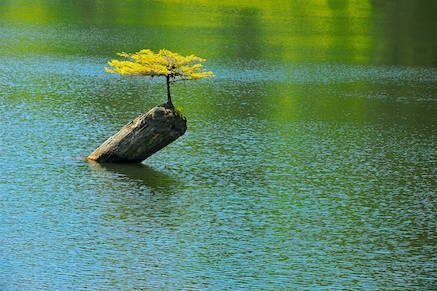
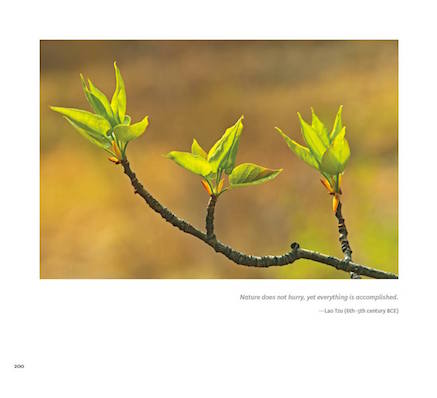

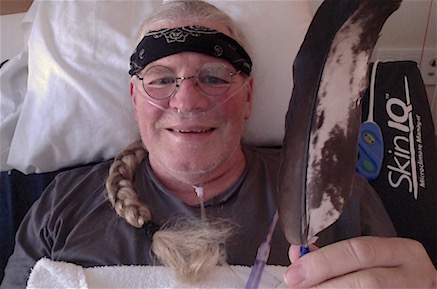
Winnipeg Beach, Manitoba
I am overwhelmed with gratitude, and thankful for the hundreds of friends, colleagues, and family members (around the world) who have held me in their thoughts and prayers during my recent health ordeal. I am also grateful beyond words to the specialists, doctors, nurses(!), nursing assistants, technicians, orderlies, physiotherapists and other vital hospital personnel who have helped me through one of the greatest trials of my life. It goes without saying that I am also incredibly thankful to live in Canada, where citizens are provided with universal healthcare!
I have happily returned with Evelin to her home, after spending the past seven weeks in four different hospitals (Selkirk, HSC in Winnipeg, Arborg, and then Gimli). I am weak, but recovering. Evelin stayed by my side throughout the 51 days in hospitals, sleeping watchfully along side me every night — what a love! I am now learning to walk again, and with the help of canes, am beginning to climb stairs as well.
What exactly transpired at Easter is still somewhat unclear (to the experts, as well as to me). What we do know is that I had a severe case of sepsis, which triggered a serious cardiac event and then an explosive series of strokes. I was heavily medicated with opiates for the first month, while doctors struggled to stabilize me and the various bodily functions that had been impacted. I’m very fortunate that, as MRIs are showing, the brain damage I suffered was only on the right side — not affecting my ability to remember, to speak, etc.
My focus over the next months (perhaps years) will be to heal, quietly and steadily, and regain whatever semblance of “normal” is available to me.
Again, a huge “Thank You!” for the love, prayers, encouragement and “light” that so many sent to me.
Winnipeg Beach, Manitoba
I’ve enjoyed living with my partner Evelin in this quiet little town for the past few years, here on the Western shore of Lake Winnipeg (the world’s 10th-largest freshwater lake by area, slightly smaller than Belgium). Water levels can fluctuate significantly in the lake’s relatively shallow southern basin, and strong or sustained winds can whip up powerful waves…
In 2016, Winnipeg Beach undertook extensive re-building of the longstanding “boardwalk” along the beach, following storm-damage and shoreline flooding the previous year. The broken and eroded wooden boardwalk was replaced by a concrete breakwater-walkway, and thousands of “engraved bricks” were installed (including 3900 that were “grandfathered” from the walk’s original wooden planks) — most commemorated the names and/or passages of loved ones who once were part of (or who regularly visited) this quiet resort/community. As part of its efforts to raise funds for the beachfront reconstruction, the town “sold” inscribed bricks (replete with a Certificate of Title), of which I “bought” four. It was fun to “leave a mark,” and easier (also more sustainable) than carving in trees. (-:
As I had not seen any previous acknowledgment along the boardwalk of the original Indigenous inhabitants of this shoreline, that seemed like an obvious first brick. Three more offered the opportunity to share some “words to live and work by” from the Maxim/Dictum that I have referenced as a Leitmotif or manifesto for the past several decades. (Technical problems with the “brick-production” delayed the installation until autumn of 2017, but I was happy to see these finally put in place…).
Winnipeg, Manitoba
My good friend Gerald Brandt’s third novel in the San Angeles trilogy, a thrilling “near-future cyberpunk sci-fi series,” has just been released by Penguin/DAW. Gerald’s “darkly gripping vision of the future” offers a tense, fast-paced, “impossible-to-put-down” tale that keeps readers on the edge of their seat, with a very relatable young heroine as the embattled protagonist. The Rebel is launching locally at McNally Robinson on Monday evening, and we look forward being there for it!
I first got to know Gerald in the 1990s when I took up rock climbing — he and his lithe twin brother were good instructors and a decade younger than I was — we bonded almost immediately (in that way that only those who put their lives into each other’s hands can do) and we became good climbing mates, with countless weekends on nearby cliffs along with unforgettable climbing expeditions in the Rockies. (Yes, Gerald’s climbing prowess makes an appearance in his San Angeles narratives).
Ev and I were pleased and honoured last night to be able to host Gerald and his partner Marnie for dinner — a real shock (and a sudden wave of tears) came when he presented me with a signed copy of The Rebel and I opened the book… Talk about chuffed! I’ve never had a book dedicated to me before…
Thanks Gerald!
Guest Blog by Dr. Derek Kornelsen
Recently, terms like decolonization and community engagement have become buzzwords in popular discourses about Indigenous health research. But what does decolonization actually mean? How can we really try to decolonize community engagement? If this is to make any sense, and provide any kind of realistic guide for action, we need to start by gaining some sense of how colonization has impacted — and continues to impact — Indigenous communities and Western academic/research institutions. Only then can we consider why community engagement matters and what a decolonized form of community engagement might look like.
A good starting point for understanding colonialism in Canada is to recognize that there is a distinct form of colonialism at work here — both past and present. This form is called settler colonialism. Typical understandings of colonialism usually refer to a situation where a colonial entity oppresses and manipulates foreign peoples in order to extract wealth and resources — India and South Africa are key examples. In these cases, there is a point at which we see the colonial power officially leaving, and the colonized peoples achieving some level of independence. On the other hand, in cases of settler colonialism, the colonial entity doesn’t leave, but continues to bring in more and more settlers in order to reproduce itself in the colonized space — Canada, USA, Australia, and New Zealand are the usual suspects here. The particularly horrifying aspect of this practice — as scholars like Patrick Wolfe have discussed in depth — is that, in order to reproduce itself in a given place, the settler colonial entity must ‘destroy to replace’. In Canada, we’ve seen this through overt genocidal acts that morphed into the kinds of cultural genocide that have occured throughout the residential school era.
Read more here…
Dr. Derek Kornelsen is an Assistant Professor in the Department of Community Health Sciences at the University of Manitoba. His research focuses on examining/contrasting Western and Indigenous philosophies and institutional frameworks, with a particular emphasis on developing a theoretical framework grounded in an understanding of the dynamics and impacts of Settler Colonialism. This theoretical framework enables a sensitivity to 2 key under-researched areas in Indigenous health and wellness research: the impacts of the disruption of Indigenous peoples’ relationships with land and environment; and strategies for decolonizing key institutions that Indigenous peoples must access (health as well as political, legal, educational, economic institutions). Broadly speaking, this theoretical frame contributes to the development of robust Indigenous determinants of health and wellness. He is currently involved in developing a number of local, national, and international research projects and partnerships in areas of environmental health and Indigenous health and wellness.
Winnipeg, Manitoba
My partner Evelin‘s daughter Jennifer is literally a “brainiac” scientist, the head of Kornelsenlab.com (a laboratory involved with brain neuroimaging research re: the study of psychological well-being and chronic pain). Jen is looking for approximately 40 healthy adult volunteers (women or men, 21-75 in age) in the Winnipeg area.
Their brain scans would help figure out the neurophysiology underlying chronic pain, such as in trigeminal neuralgia and facial pain, in terms of the effect those conditions have on brain structure and function. She is nearly done collecting data from the patients with those conditions — now she needs to match each of those patients with gender-and age-matched healthy people to observe the differences. You’d be contributing to science — (and there’s an honorarium of $25).
What is involved?
1) Use the ‘contact us’ link on the website (and include your phone number in the message);
2) you will receive a telephone call that explains the study and what you as a volunteer would do, and, if you’re still interested, then a quick “phone screen” for eligibility would take place;
3) you would get a date/time for your MRI appointment at HSC (Health Sciences Center);
4) at the appointment you would fill out informed consent, MRI screening, and a few questionnaires and then hop in the MRI for an approximately 30-minute set of scans.
Visit here to sign up (use the Contact form) — you can also check out the lab’s ongoing research, publication record, etc. there.
Thanks in advance… (and please share)!